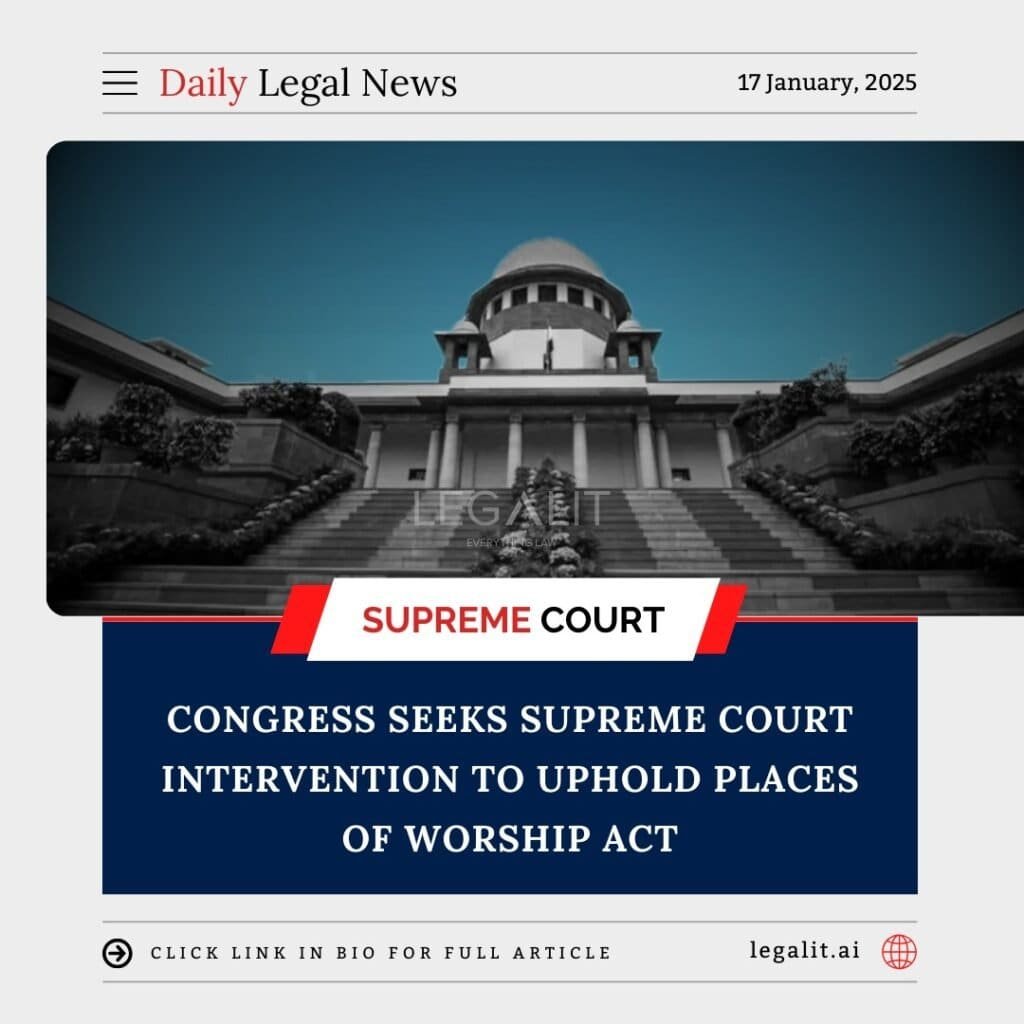
Background
The Congress party has approached the Supreme Court to support the constitutional validity of the Places of Worship (Special Provisions) Act, 1991. This legislation prohibits the alteration of the religious character of places of worship as they existed on August 15, 1947. It aims to preserve the secular fabric of India by maintaining communal harmony and discouraging disputes over historical religious sites.
The move comes amid challenges to the Act’s provisions in the Supreme Court by various petitioners who argue that the law infringes upon their right to religion and remedies for historical grievances.
The Congress Stand
Congress, in its plea, has emphasized the following:
- Upholding Secularism: The Act is a cornerstone of India’s secular structure and safeguards the peaceful coexistence of diverse religious communities.
- Preventing Communal Disharmony: Altering the status of places of worship could lead to societal unrest and disrupt communal harmony.
- Respect for History: The Act ensures that historical wrongs are not used as a pretext for contemporary conflicts, preserving the nation’s focus on the future rather than reopening past wounds.
Challenges to the Act
The Act has been challenged on grounds that it:
- Restricts Religious Rights: Petitioners argue that the law prevents certain communities from reclaiming their places of worship that may have been altered or destroyed in the past.
- Excludes Ayodhya: Critics highlight the exclusion of the Ayodhya Ram Janmabhoomi-Babri Masjid dispute from the Act’s purview, arguing this undermines its uniform application.
- Judicial Review: Opponents believe the Act curtails the judiciary’s ability to adjudicate disputes related to historical injustices.
Significance of the Case
The outcome of this case will have far-reaching implications, including:
- Preservation of Secularism: A ruling in favor of the Act would reaffirm India’s commitment to secular principles enshrined in the Constitution.
- Social Stability: Upholding the Act would prevent potentially contentious litigations over religious sites, which could lead to unrest.
- Historical Accountability: The case also raises questions about addressing historical grievances in a way that aligns with contemporary constitutional values.
Conclusion
By intervening in the Supreme Court proceedings, Congress has positioned itself as a defender of secularism and communal harmony. The case offers the judiciary an opportunity to clarify the balance between historical justice and the need for social stability, ensuring that constitutional values remain paramount.
[ajax_laod_more]